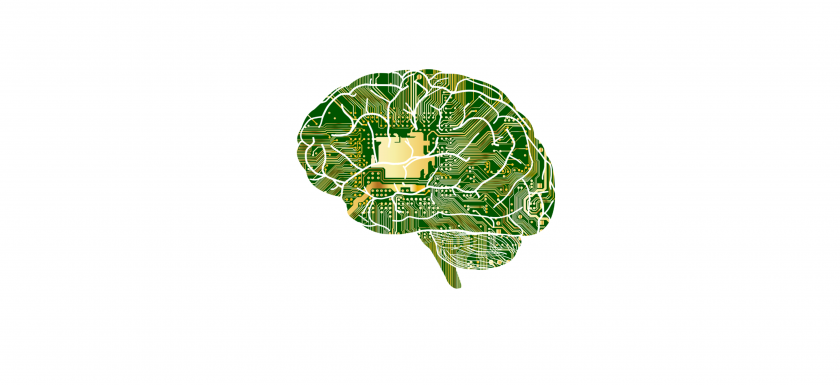
A summer school at HZB offers insights and practical experience
How do we benefit from neural networks? How do they make our work easier? And in what concrete scenarios can these algorithms be used? These were questions that were dealt with by around 50 participants, from eleven countries, at the Machine Leaning Summer School of Helmholtz-Zentrum Berlin.
The summer school offered a lot theoretical insights, but also some practice too. Some of the participants were able to gain their first experience in hands-on exercises, while the more experienced finished with a two-day hackathon, in which they tackled matters from real-world research and came up with ideas and solutions together. Their common goal: to demonstrate how enormous the potential of machine learning is and how greatly it helps those who are developing solutions to many scientific problems.
The summer school brought 37 beginners and 15 experienced scientists together for a week in September. It helped computer scientists and data scientists to network with physicists and biologists. How well did it go?
Silvia Zerbe and Florentine Krawatzek (HZB Comms) asked four participants, what motivated them to take part in the Machine Leaning Summer School and what did they take away from it for their future.
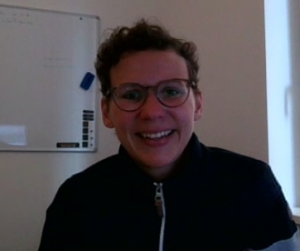 Kerstin Heinecke, biomedical engineer, 28
Kerstin Heinecke, biomedical engineer, 28
“I have just finished my master’s in biomedical engineering, and am starting my PhD at the Physikalisch-Technische Bundesanstalt (PTB) in Braunschweig. I dealt with machine learning algorithms already in my master’s thesis. Many medical fields use imaging techniques. Algorithms can help a great deal in improving image quality and evaluating the data.
I wanted to attend the summer school at all costs, and so I applied, because I already had theoretical knowledge from university. But I also wanted to try machine learning hands on and gain concrete experience in it. And I got to do exactly that, part of which was at the hackathon. In our project, we fed data through a neural network to compress the volumes of data as much as possible. That is important when you have to analyse giant amounts of data.
Of course, it’s a challenge to take part in a summer school that is only held online. But the programme was really well organised. Everyone there had a similar level of knowledge, and we all had interesting conversations about the topics – I got into it very quickly! What I can take away from the summer school is that theory only carries you forward if you can try it out in practice. You need to take this time to develop and to test algorithms. Then even new ideas come along as well.”
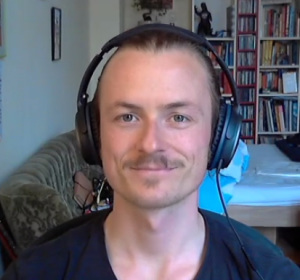 Hans Kirschner, physicist, 30
Hans Kirschner, physicist, 30
“I am currently doing my PhD at Humboldt University and the Physikalisch-Technische Bundesanstalt, which also operates beamlines at BESSY II. I am using synchrotron radiation to characterise molecular layers on solids and am studying how they interact with light. The topic of neural networks has always striked me, however I had never had any real contact with it before. The terms “machine learning” and “neural networks” were more buzzwords for me so far. So I had to find out what was behind them. At the summer school, we tackled practical problems that could be solved with machine learning. Before that, they gave us a highly structured overview of how such networks are built, and all the different methods that exist. I found it all very fascinating. I felt a little bit constrained by the online format, though. I would have liked to have made more contacts.
I won’t really be needing the material I learned there for my PhD, but I did come away with a lot, and there will certainly be points of contact later on. After all, I attended the school purely out of my own drive for research. But that’s how it always is: once you’ve had some questions answered, you immediately get more questions popping up in your head, which also have to be answered. So, I will definitely be dealing with this topic more later on.”
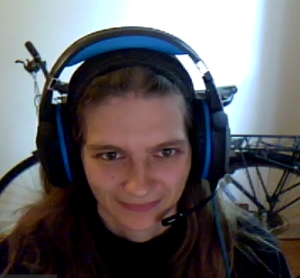 Gesa Goetzke, physicist, 28
Gesa Goetzke, physicist, 28
“This was already the second time I attended the summer school, and I had the chance to support the event as a tutor. For me, it is all about making contacts. It is through the contacts I made at the previous summer school in 2020 that I am now starting my doctorate at TU Berlin. I find the summer school to be super helpful, just for the very fact that you gain an overview of the very broad topic. My favourite part was the keynote speech on artificial intelligence. It is exciting to deal with the larger, philosophical questions looming behind the topic.
I was introduced to neural networks through a student temp job, and then brought the topic into my physics studies as well. For my master’s, I was able to develop an improved evaluation method using neural networks. The inspiring cooperation is probably what I take away from this year’s summer school. Even though we only met up online, it was a great feeling to know that others were working on similar problems. And there were even other ideas where I thought: cool, I can use that for my stuff, too!”
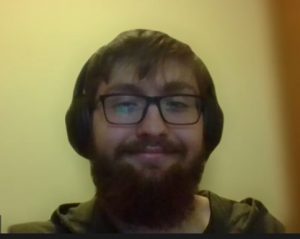 Artur Kasymov, theoretical computer science student, 21
Artur Kasymov, theoretical computer science student, 21
I am from Ukraine and I am studying Machine Learning in Krakow, Poland. I did my master’s there, and heard about the summer school just before it was about to start. My CV and letter of motivation were ready two hours before the deadline – I was really lucky that I made it!
Now, I am very happy to have had this experience. I had never worked with scientists in other fields before, and that was very enriching. Our hackathon project was about automatically evaluating the data from a physics experiment. We worked from X-ray images for this. We used neural networks and algorithms to label these images, so that they could be evaluated more easily. In this way, we made it so that the supervising scientist wouldn’t have to look at every single image. That makes his work much easier. Now we are really excited to know what he thinks of it. We will soon be giving our presentation to the other participants and supervisors. I am impressed, because I learned a lot over the last week, and now have a better understanding of how physicists work and what they need exactly for their work.
In short: The HZB Machine Learning Summer School
- held for the 2nd time at HZB
- participation is free
- 37 beginners from at least 6 countries
- 15 experienced scientists from at least 4 countries
- one third women
- three hackathon projects: Inversion of a Beamline, Spectrometer Alignment via Machine Learning, Classification of Coherent X-Ray Images
- the Summer School was supported by high-performance computers (HAICORE resources) of KIT
- 3 keynote lectures:
Bernhard Sick/Daniel Kottke (University of Kassel): “Introduction to active learning”
Duncan Blythe/Sebastian Lee (Berliner start-up LF1): “LF1: the road from NLP research to innovation hub”
Peter Steinbach (Helmholtz AI Hub Matter): “Echoing why AI is harder than we think”
- HZB’s organising team: Gregor Hartmann, Tamara Husch, Jens Viefhaus
Would you like to be there next time?
Are you interested, and would like to take part in the next Summer School 2022? Then simply follow us on Twitter and LinkedIn! We will announce the next call on these channels at the latest by the summer of 2022. And of course on our website under: www.helmholtz-berlin.de/events We look forward to hearing from you!
Article and interview: Silvia Zerbe and Florentine Krawatzek
Do you want to know more about Summer Projects at HZB for students?
https://science.hzbblog.de/tag/summer-project
